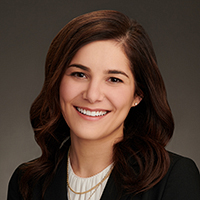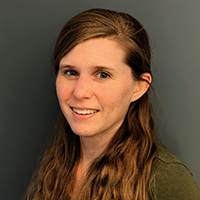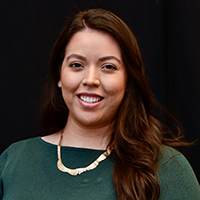Association recognizes leadership, dedication, and innovation in state higher education policy and administration.
Washington, D.C. – The State Higher Education Executive Officers Association has announced the organization’s SHEEO Excellence Awards recipients. The awards recognize the leadership, dedication, and innovation of exceptional SHEEOs, agency staff, and agencies at a time when state postsecondary policy is increasingly linked to student success and, in turn, states’ economic and social prosperity.
- The Exceptional Leader Award recipient is Zora Mulligan, commissioner of higher education for the Missouri Department of Higher Education & Workforce Development.
- The Exceptional Agency Award recipient is the Massachusetts Department of Higher Education.
- The David L. Wright Memorial Award recipient is Patty Sanchez, academic affairs program manager for Idaho’s Office of the State Board of Education.
Reflecting on the SHEEO Excellence Awards, Dr. Robert Anderson, president of SHEEO, said: “SHEEO is so pleased to be able to celebrate and acknowledge the hard work of all of our state higher education executive officers, their agencies, and the agency staff members. The efforts of these individuals and agencies help address the needs of students and advance our institutions of higher education. Their hard work and commitment should be commended. It is our honor to recognize the winners of this year’s SHEEO Excellence Awards.”
Exceptional Leader Award
The Exceptional Leader Award is presented to a current state higher education executive officer from a member agency who has shown exceptional leadership, a commitment to higher education, a contribution to the greater good, and service to the SHEEO Association within the last year.
This year’s recipient of the Exceptional Leader Award, Zora Mulligan, is Missouri’s commissioner of higher education, holding the position since August 2016 and serving on SHEEO’s Executive Committee since 2020. Mulligan’s team shared that she is always looking for ways to improve policies and outcomes. She can often be heard saying, “education changes lives,” and meaning it. Mulligan is passionate about the work of her staff and prides herself on offering hope for a better tomorrow to the citizens her team serves.
During her time as commissioner, Mulligan has led efforts to restructure and transform state government to bring the agencies responsible for postsecondary education, workforce development, and economic research together under one department. This transformation was in response to efforts in 2018 when Mulligan co-led an initiative to build a statewide coalition that developed and advocated for a comprehensive suite of proposals addressing workforce needs. These initiatives included funding higher education institutions to develop or expand academic programs for high-demand occupation jobs and the creation of a full-tuition grant program for adults.
Mulligan and her team have partnered with colleges and universities around the state to address equity gaps in higher education, substantially improving transfer for Missouri students, increasing graduation rates through alternatives to remedial coursework, and implementing new rules that give public colleges and universities greater ability to meet statewide and regional workforce needs.
Mike Parson, governor of Missouri, said: “Zora is a dedicated and passionate leader who is committed to bringing lasting opportunities to Missourians all across the state. She always welcomes a challenge and is at the forefront of aligning our workforce development and education priorities to better serve all Missourians. Zora is a tireless advocate for higher education in Missouri, and we are fortunate to have her in this state.”
Joe Cornelison, chair of the Coordinating Board for Higher Education, shared: “We are privileged to have seen first-hand Zora’s efforts and success in our state. She is a dynamic leader who is esteemed throughout Missouri, and highly respected by her staff, peers, and state officials. We are proud of her and look forward to working with her in continuing the effort of moving the state toward achieving its strategic goals.”
Exceptional Agency Award
The Exceptional Agency Award is presented to a member agency whose innovative actions, policies, or practices advanced student success in their state; which displayed exceptional governance practices; overcame exceptional challenges; or displayed other meritorious attributes within the last year. The Massachusetts Department of Higher Education (MDHE) has demonstrated a consistent commitment to advancing postsecondary education and student success within Massachusetts.
One notable accomplishment by the MDHE was adopting the vision for the Equity Agenda in December 2018. After an intensive professional development series in partnership with the University of Southern California’s Race and Equity Center, the Department of Higher Education launched its action plan. With the support from Lumina Foundation and after being designated a Talent, Innovation, and Equity (TIE) state, the action plan included reimagining the student experience, conducting a policy audit, and developing a 10-year strategic plan for racial equity.
A number of key initiatives have been at the forefront of the Equity Agenda, such as creating a seamless system of transfer, expanding early college, increasing access to open education resources, transforming developmental education, and addressing basic needs security. Using data and evidence to measure progress towards the goal of racial equity, the board and department will work towards redesigning the policy scheme to build a culturally sustainable public postsecondary system where students can thrive.
Carlos E. Santiago, the commissioner of MDHE, said: “We are fortunate to have a staff dedicated to the educational success of all of our students, particularly historically excluded students, a system of public educational institutions that share our values, mission, and strategic initiatives, and a board and leadership that is committed to the highest ideals of higher education. This is a collective effort that seeks to make students’ highest aspirations a reality.”
Chris Gabrieli, chairperson for the Board of Higher Education, shared: “We are delighted and honored that SHEEO has chosen the Massachusetts Department of Higher Education for recognition. As arguably the birthplace of public education in the country, and one of the epicenters of higher education in the world, Massachusetts takes great pride and interest in fostering opportunity through our public higher education system. This department, led by our outstanding commissioner, Carlos Santiago, and fueled by a team with diverse experience and backgrounds, has worked hard to advance the interests of students and schools. We are especially proud to have made our Equity Agenda a top priority—this department puts student opportunity and overcoming historical barriers at the top of what we do and who we are, in both priority setting and actions accomplished. On behalf of our board and Commonwealth—thanks to Carlos and the team!”
James Peyser, Massachusetts secretary of education, said: “The work done by Department of Higher Education and Commissioner Santiago, and his team, over the past year has been outstanding. On behalf of Governor Baker and Lt. Governor Polito, I want to thank SHEEO and congratulate the commissioner and the DHE staff. This award is an important recognition of the innovative work in equity that the department has undertaken over the past couple of years. There remains much to do in the years to come, and I believe the commissioner and the department will be effective leaders of our state universities and community colleges in that work.”
David L. Wright Memorial Award
The David L. Wright Memorial Award is named in honor of the late David Wright, an esteemed colleague and leader in state higher education, who served in the Tennessee Higher Education Commission, the State Higher Education Executive Officers Association, and the Florida Governing Board. This award recognizes a current SHEEO agency staff member from a member agency who embodies the exceptional commitment, work ethic, and ethical practices of David Wright and made outstanding contributions to their agency.
Patty Sanchez, this year’s David L. Wright Memorial Award recipient, began her career in public service at Idaho’s Office of the State Board of Education as a student intern nearly 29 years ago. Over her long career, she has held several positions in various departments of the agency. For the past 13 years, Sanchez has served as the academic affairs program manager, where she has dedicated effort behind the scenes to ensure that program proposals, academic planning, and policy processes are executed with accuracy and fidelity. Sanchez’s nomination stressed that she cares deeply about supporting board members and institution colleagues to build knowledge, striving for collaborative and cohesive efforts among various statewide committees and workgroups. Sanchez is tireless in her efforts to ensure postsecondary institutions faithfully implement and responsibly monitor their academic technical programs.
While Sanchez’s long and varied service has been outstanding, she has also demonstrated exceptional commitment, work ethic, and ethical practices in other important ways. In addition to core job responsibilities, Sanchez contributes to a sense of community within the office as the agency sponsor for the annual United Way fundraising drive. She voluntarily coordinates holiday-themed and office-sponsored events for staff, giving selflessly of her time and personal resources, to encourage and support her coworkers. Sanchez cares deeply for all populations served by the board, as demonstrated through her steadfast efforts as the board’s staff on the Idaho Indian Education Committee. This work includes partnering with K-12 staff to represent the board at tribal meetings, planning events, developing goals and objectives with the committee, and working with institutions to find solutions that provide greater postsecondary access to Native populations.
Sanchez has served effectively under numerous chief academic officers while adjusting to several changes in executive leadership and the ongoing transitions in board membership. Senior staff, provosts, vice-presidents, and other organizational leaders rely heavily on her counsel and knowledge of agency history.
Dr. Christopher Mathias, chief academic officer (2013-16) and current member of the Idaho State House of Representatives, said this about Sanchez: “As a U.S. Coast Guard veteran, I know what commitment and reliability in public servitude looks like, and Patty Sanchez operates at that level. In my years as her supervisor, I never doubted her ability to execute key tasks in an ethical and exceptional manner. In an era where many states continue to invest less in their higher education systems—including Idaho—having passionate and reliable SHEEO staff has never been more important. They, like the institutions themselves, are being asked to do more with less every day. Patty Sanchez is no exception.”
Dr. Selena Grace, chief academic officer (2010-13) and current senior vice president at the Northwest Commission on Colleges and Universities, shared: “I have known Patty Sanchez for 15 years and worked with her as a colleague, as her supervisor, and as an institutional representative seeking her guidance and advice. Thoughtful, committed, and selfless are three words I would use to describe Patty Sanchez. I was quickly impressed with her ability to navigate the politics of being both an enforcer of Idaho postsecondary education policies and an advocate for the betterment of Idaho higher education.”
###
The State Higher Education Executive Officers Association (SHEEO) serves the chief executives of statewide governing, policy, and coordinating boards of postsecondary education and their staffs. Founded in 1954, SHEEO promotes an environment that values higher education and its role in ensuring the equitable education of all Americans, regardless of race/ethnicity, gender, or socioeconomic factors. Together with its members, SHEEO aims to achieve this vision by equipping state higher education executive officers and their staffs with the tools to effectively advance the value of higher education, promoting public policies and academic practices that enable all Americans to achieve success in the 21st century, and serving as an advocate for state higher education leadership. For more information, visit https://sheeo.org.




